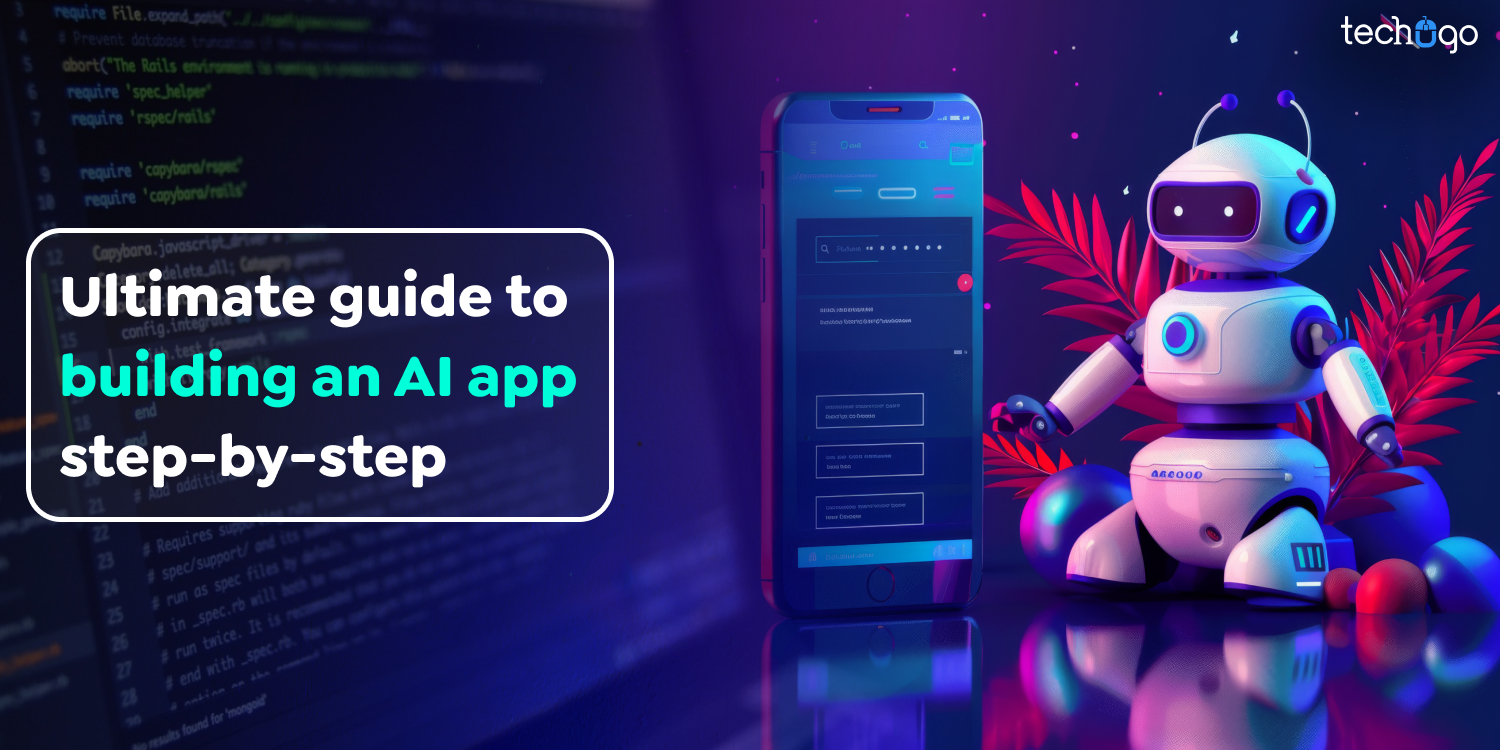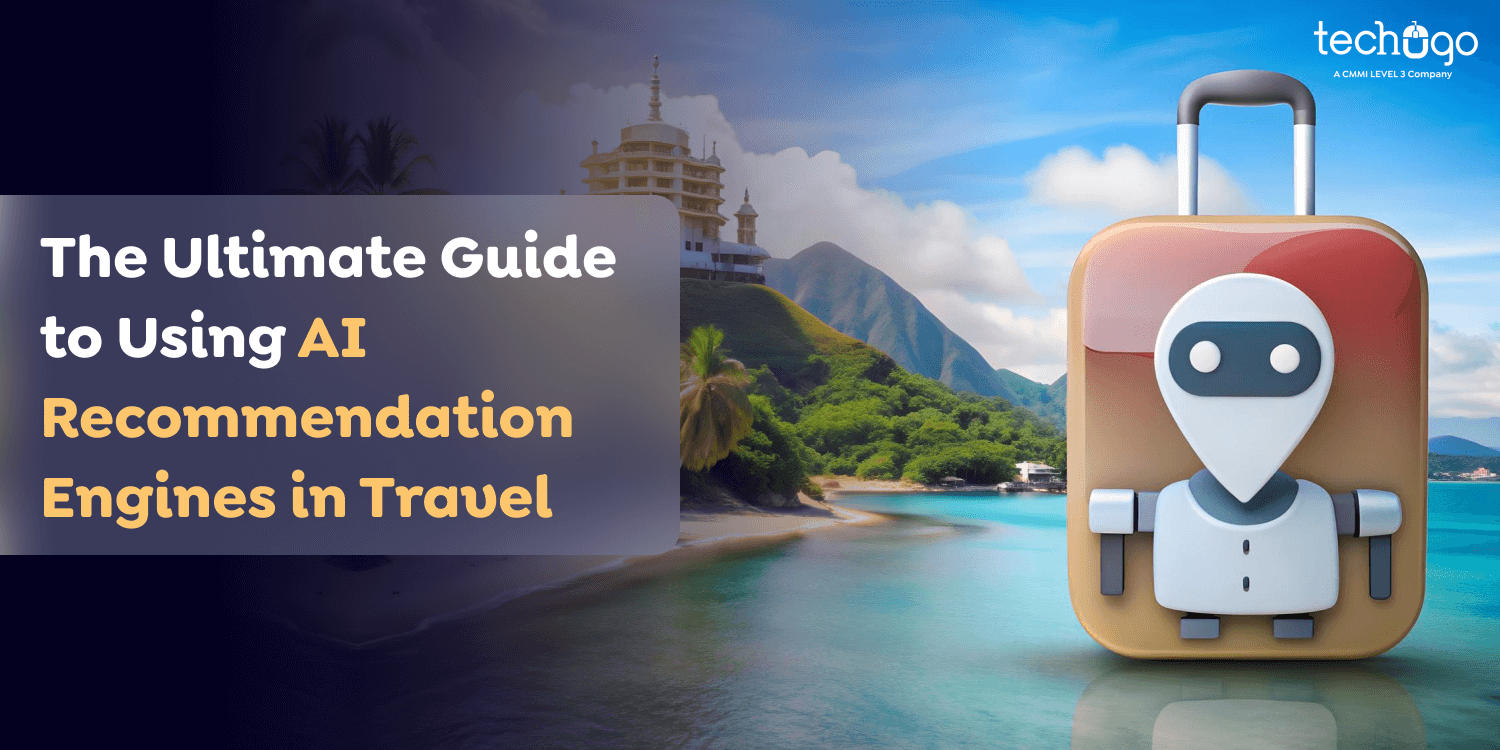17 Oct 2024
Updated on January 31st, 2025
AI for Enterprise: Transforming the Future of Business Through Innovation
Matthew Connor
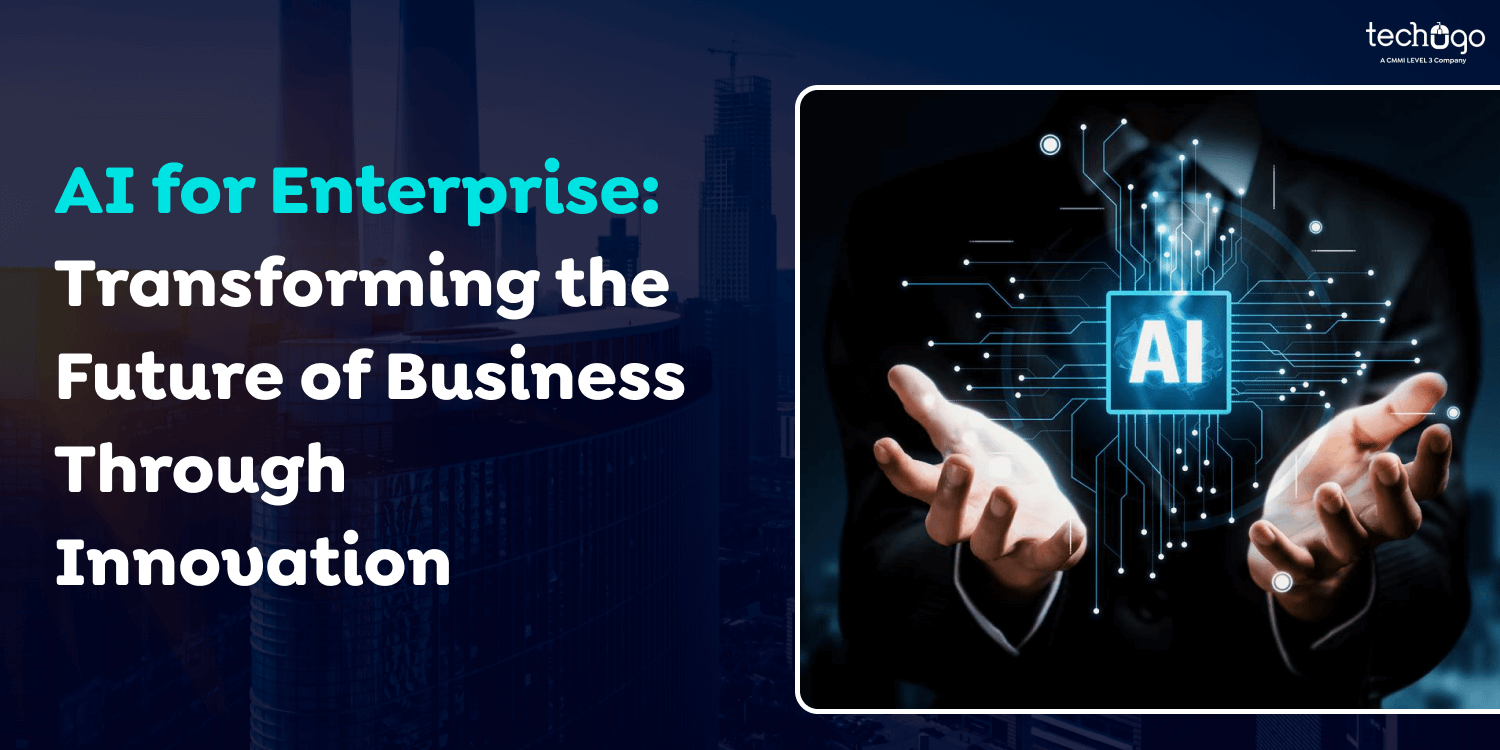
Today’s businesses compete to keep ahead of the trend with cutting-edge solutions and technologies. Based on data, the company can improve its procedures and make better decisions. This is where AI solutions for enterprises come into action, bringing a new way to run business. AI provides entrepreneurs insights into business processes and the market and assists in making future-oriented changes using predictive analytics.
AI’s ability to change business operations is more than a distant possibility. Businesses are being changed through AI for the enterprise in many ways, including improving workflows and efficiency and using machine learning (ML) to provide easy access to top-quality data sets. Businesses across the globe are now integrating ML and AI in business transformation as a standard practice. These new technologies are shaping the digital operations of the future.
Managers can achieve an advantage by implementing AI to improve enterprise operations. This is due to a myriad of reasons, and early adopters can gain more speed over those who sit and watch. Through the use of big data, they can streamline workflows, improve customers’ experiences, and better manage inventory.
Do you want to learn more about how AI can transform businesses? Then, continue reading this post till the end.
The Role Of AI In Business
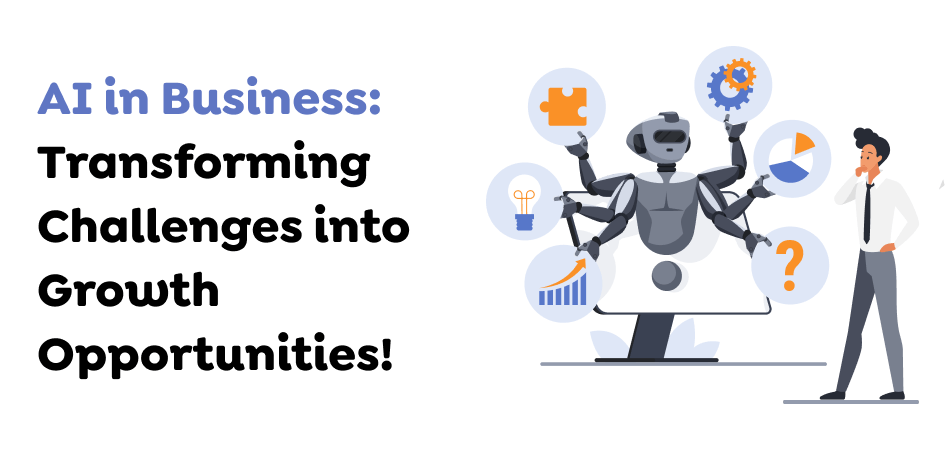
In essence, AI is the capacity of machines to gain knowledge from the data they collect and to make decisions based on the analysis. AI systems are created to replicate human-like intelligence and allow them to complete jobs that require human input. With the help of AI, companies can streamline procedures, enhance data analytics, and make better decisions based on data.
One of the keys to harnessing the potential of AI is understanding how analysis and data collection are incorporated into artificial intelligence. By studying the process of AI, businesses can discover potential applications for it and adapt its application to their particular industry and demands.
AI has already played an important function in the growth of technology, enabling the creation of new approaches and leveraging old methods to develop newer and advanced strategies. Studies show that over the past 20 years, applications-based learning research has become more prominent thanks to advancements in deep learning and innovation.
The trend will lead to a transition from research that requires labor to methods that use improved predictive algorithms to massive databases made possible by AI, empowering companies that invest in the technology to develop more quickly. AI can also serve as a bridge between various fields since the technology can combine different data sets, methods, and expertise. Collaboration can lead to the development of new strategies that would never have been thought of previously.
Also Read : Understanding the Significance of AI in the Energy Sector: Key Benefits and Use Cases
How Is AI Important For Enterprises?
The emergence of big data, rising customer expectations, and the necessity for agility and innovations all require companies to implement advanced technology to stay ahead of the pack. The volume and amount of data created by modern businesses make it essential for companies to evaluate and review the methods they are currently using. Enterprise AI apps allow companies to draw valuable information from the data they collect, revealing obscure patterns, trends, and potential opportunities that would go unnoticed otherwise.
In addition, AI-powered systems could simplify complex decision-making processes, allowing businesses to adjust to shifts in market dynamics rapidly and precisely. The ability to adapt can help businesses control volatile market dynamics, improve processes, and gain a competitive edge.
Enterprise AI isn’t just about adopting a single tech. It requires creating a complete AI plan that is aligned with the company’s objectives while ensuring security, scalability, and ethical aspects. The holistic approach to AI can revolutionize conventional business practices, allowing organizations to be more responsive to changing market conditions and upcoming opportunities.
Also Read : AI in Dating Apps! Swiping into the Future of Making Matches via Technology
Benefits Of AI For Businesses
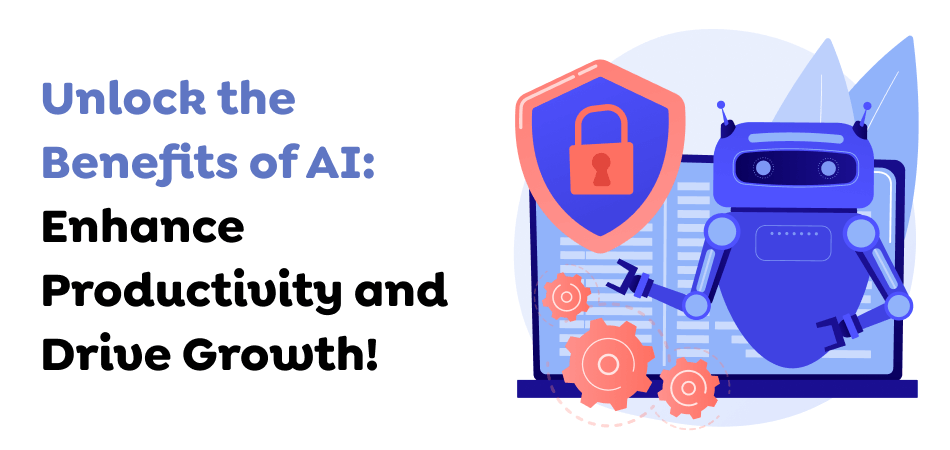
AI is now vital in organizations across all sectors, providing many advantages that boost efficiency, creativity, and expansion. The following are some of the benefits of integrating AI for the enterprise processes.
1. Data-Driven Decision Making
Companies today heavily rely on data for operations and business-related decisions. AI algorithms can speed up data analysis and analyze the vast amount of data companies currently generate and manage. They generate valuable information that improves forecasting accuracy and aids businesses in enhancing their marketing strategy, improving resource allocation, and pinpointing obstacles in various methods.
2. Improved Customer Experience
The most well-known adaptation of AI, particularly Gen AI, is innovating the customer experience. Gen AI-powered chatbots offer a more human-like experience to their customers, providing a personal touch and increasing satisfaction. ML, an aspect of AI, can also train with customer data through various data sources to determine customer feedback and product suggestions that will be more likely to be bought.
3. Process Automation
Incorporating AI in these automated workflows introduces decision-making capabilities. These can take over mundane duties like procedures for onboarding employees or checking compliance in accordance with guidelines.
4. More Complex And Faster Analysis
AI for the enterprise can identify patterns and discover insights from massive, multidimensional datasets at an unbeatable speed and accuracy. AI algorithms use parallel processing, breaking an entire workload into small parts that may be processed in parallel. GPUs are special processors that perform technical calculations more quickly than regular processors. They also offer the possibility to incorporate real-time data sources in the business intelligence system.
5. Innovation And New Product Development
AI can analyze competitors’ strategies, consumer feedback, and current market trends to discover emerging business opportunities and optimize product development processes. Thus, companies can better adapt to market trends and develop new products.
6. Proactive Risk Management And Security
Risk management is the invisible hero in the business world. It is a crucial factor that can determine a business’s fate. What’s more, AI has ascended as a superhero and is growing the capability to detect and reduce risk. It’s as if you have a trusted companion on your side, right? Recognizing patterns and finding irregularities in data streams, AI can do it all with aplomb, finding potential risks before they consider escalating!
7. Predictive Analytics
Predictive analytics, powered by AI, can help businesses anticipate future trends, consumer behaviors, and market shifts. Additionally, it is a vital technology for production and supply chain industries, aiding in the maintenance schedule of machines and supply chain route plans.
8. Cybersecurity
AI is a powerful technology with three main characteristics that make it a security technology of choice: its capability to analyze large volumes of data quickly, detect patterns that can detect anomalies, and automate repetitive procedures. AI can identify suspicious behaviors and activity in real-time and help companies protect themselves and their customers from financial loss and security breaches.
Also Read : Revolutionizing Supply Chain Efficiency: The Role of AI in Demand Forecasting
How To Implement AI At Enterprise Scale?
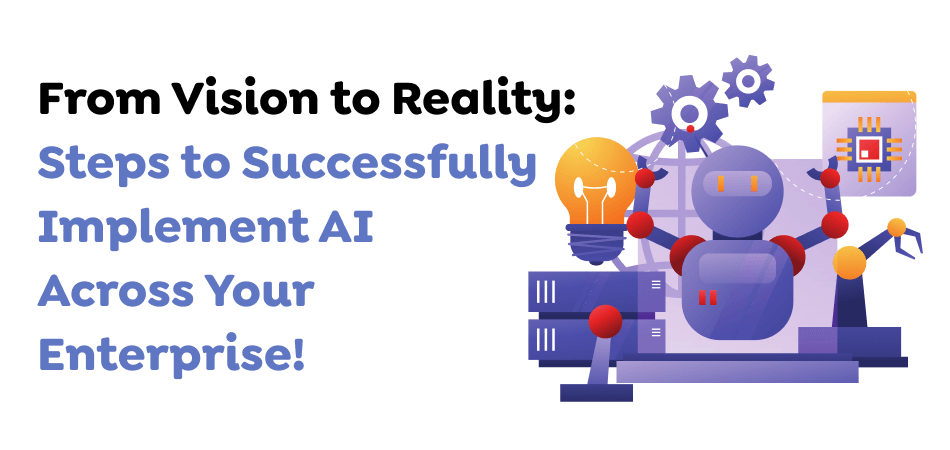
AI adoption is increasing across every sector and is exceeding forecasts of expansion. To stay ahead, businesses must predict future AI requirements and transition their current work. When starting your very first AI project or incorporating AI tasks into your current infrastructure, here are the best ways to make your AI process succeed.
1. Choose One AI Use Case To Begin With
Instead of a massive shift, focus on one application that could directly influence a specific business issue and gain executive approval without financial challenges. While deciding on a case, consider the following factors: Could this issue be solved with existing data that can be used to gain insights through AI algorithms? Can this application scale to the more significant problem the organization aims to address? Do you think the scenario is straightforward enough to present to your business customers?
2. Pilot An AI Project
Starting an AI project involves various actions, ranging from creating teams to selecting appropriate tools, AI workloads, and infrastructure. Successful AI projects need to establish teams composed of subject matter experts such as AI or mobile app development company in Canada who help with this exciting new venture and also obtain researchers and AI engineers.
Make sure to choose AI tools that are performance-optimized and verified for your workloads to avoid inaccurate outcomes. Also, ensure you have a solid accelerated computer system with the complete software solution stack.
3. Simplify Proof Of Concepts
Suppose you are conducting a proof of concept that can later be utilized to create a prototype application. In that case, it’s crucial to optimize the resources and infrastructure. The most successful and scaling AI applications will be the ones that can integrate into the existing infrastructure. Companies can start by investing a small amount of money and utilizing state-of-the-art AI software to streamline development.
4. Scale Incrementally
A successful piloting of the success of an AI project is only the start. Growing AI is perhaps the biggest issue for businesses. It will continue to be an ongoing process when the size and complexity of your AI projects increase. With the gradual growth of your AI infrastructure’s scope and enhancing your AI’s interoperability, you can gain more flexibility, improve budgets, and get the most value from the AI investment.
5. Continuously Improve AI Models And Processes
Innovation in business processes using AI is a continual process of evaluation, adoption, and enhancement. Create automated systems to ensure continual deployment and testing of the latest AI methods and features. Continuously monitor the deployments to identify workflow shortcomings and optimize your AI processes. You’ll soon be ready to tap into AI’s enormous potential within your company.
Also Read : Explore How AI in Banking Transforms Customer Service and Security
Ways AI Is Revolutionizing Businesses And Innovation
AI can’t substitute for human ingenuity and intelligence; it’s just a support instrument. Although AI may not be able to complete simple tasks in the real world, it’s adept at analyzing and processing a plethora of data faster than human brains. AI has the ability to analyze data and synthesize courses of action for human beings, helping us determine possible implications and simplify business decision-making.
AI’s capabilities can make it an invaluable business tool, specifically in the following areas:
1. Strategic Planning And Forecasting
Strategic planning involves a step-by-step procedure for meeting business objectives (increasing profits and reducing costs) through the creation of concrete steps. AI assists in planning long-term strategies by providing in-depth insights into constantly changing trends within the post-COVID-19 global market.
AI helps to develop competitive intelligence by offering solutions to possible risks and generating effective marketing strategies to target different markets. Businesses can make well-informed and practical choices, resulting in increased revenues and reduced expenses.
2. Managing The Supply Chain
AI-driven solutions increase transparency and efficiency in supply chains. This can improve the handling of goods forecasts about consumer demand and delivery procedures. It can lead to reduced costs, higher output, and a higher level of customer satisfaction. AI can monitor the status of shipped products and detect disruptions or delays. This will help companies make more educated decisions and proactively avoid potential problems.
3. Voice And Image Recognition
AI voice recognition, including the acoustic, pronunciation, and model of language, can improve interactions between businesses and their customers, increasing effectiveness by recording speech more quickly than typing. Companies can employ one or a combination of the three models to enhance the customer experience, boost the accuracy of their data entry process, and design specific marketing strategies tailored to their clients’ needs.
Image recognition is similar to voice recognition, but it performs distinct tasks. AI can assist with photo production, optical character recognition, and facial recognition. It can also help firms in product recognition, visual search, and security surveillance.
4. Employee Efficiency And Satisfaction
AI improves worker productivity and happiness by automating routine tasks, providing specific instructions, and providing immediate input. Using AI to streamline administrative processes like schedules, data entry, and invoicing lets employees concentrate on more enjoyable tasks, driving the company’s performance.
AI will also offer individualized instructions based on an employee’s abilities, qualifications, and preferences for learning. This will aid employees in acquiring more skills and advancing within their organizations while also increasing the efficiency of their work and motivating them.
5. Market Expansion
AI uses voice assistants to improve customer interactions and provide a seamless experience for the world’s markets, which were previously impossible because of cultural or linguistic challenges. Today, we live in a global world in which AI can connect distant regions of the world, linking businesses with diverse languages. It can identify clients by the location of their residence, their language, and their cultural preferences.
6. Advertising And Marketing
AI technology has already transformed the way businesses communicate with their customers. AI technology is helping to improve methods of marketing and advertising. Companies can use AI-powered tools to study client data and behavior to find patterns to guide marketing strategies.
Utilizing algorithms for predictive analytics and recommendations, AI can fine-tune display advertisements, social media marketing, and emails for promotions. Companies can use the data they collect by using AI tools to improve sales and conversion rates through the right message to the correct user at the right moment.
7. Analyzing Competitors
Analysis of competitors using AI gives detailed information about competitor strategies as well as the perceptions of customers. In analyzing key metrics, like audience growth in engagement, posts, and volume on various platforms, marketers can measure their social profiles against rivals. A thorough analysis of the share of voice, participation impressions, and sentiment can help find the key areas where an organization stands out or could benefit from enhancement.
8. Personalized Customer Experiences
Giving customers a customized service can help people feel special and create stronger connections and positive feedback. Nowadays, consumers expect businesses to provide personalized services, so 76% are frustrated when they do not receive that service.
Through the use of AI, the ability to analyze your customers’ data to determine their preferences and behaviors. Once you have analyzed the information, AI models use this data to offer personalized suggestions for content, services, and other products. Be sure to comply with the data privacy rules.
9. Reduced Errors
Making mistakes during operations, information entry or even decision-making could result in increased expenses, lower revenue, and damage to the business’s reputation. Poor quality data due to mistakes in data entry causes organizations to lose $12.9 million annually.
Learning AI algorithms to spot mistakes can be difficult because building models requires precise and reliable data. As with all fraud detection methods, they need human supervision. You will require experts to verify your AI models’ validity before you can count on them to decrease operating errors.
Also Read : AI in Mental Health: Discover the Challenges and Opportunities
Challenges To Enterprise AI Adoption
Although AI could be an extremely well-known technology in digitally intelligent companies, its rapid acceptance has a few obstacles. The following section will explore the challenges to enterprise AI adoption.
1. An Explosion Of Data
The speed, volume, and range of data modern-day enterprises produce are immense. However, as companies accumulate massive amounts of data, the question is posed: how do they manage, store the information, comprehend, communicate, and combine data to provide information that will help them make decisions? Good data quality can provide the basis for AI solutions. Modernizing infrastructure that supports high-quality data management is the foundation for company AI initiatives.
2. Integrations And Security
AI integrations require the latest SaaS solutions and moving data and applications onto third-party platforms. AI is a resource-intensive technology that demands high computing power, lightening the speed of data transfer, and smooth scaling. Many companies are forced to move their corporate application and data to a cloud service provider such as AWS and Microsoft Azure.
Many businesses are not at ease with having their data control transferred to an outside company. They are concerned about security precautions that are adequate by these providers. In some cases, regulatory authorities may even rescind such transfers, especially for financial technology applications that adhere to strict privacy standards.
3. Diverse Stakeholders
AI integration is bringing changes to the technology stack of organizations and processes. It is an initial cost to upgrade the current IT infrastructure, hire highly skilled specialists, and eliminate devices and technologies that do not work with the current technology of the future. Enterprise AI initiatives also require improving the communication and collaboration among three teams that are the most critical users.
AI app development company (developers, data scientists, and AI engineers), enterprise IT (IT administrators, MLOps, DevOps), and business lines (marketing and sales, customer service, operations). If the AI pipeline develops, a streamlined change management process is required to keep the three teams in sync. Board members and investors must also be convinced of the benefits derived from Enterprise AI plans.
How AI Is Changing Industries?
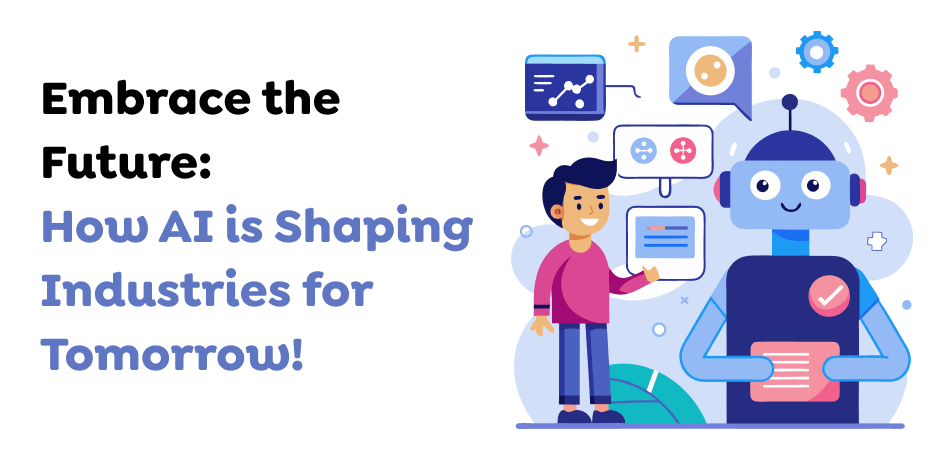
AI has revolutionized multiple industries such as education, healthcare, bioscience, marketing, creative services, automotive, finance, and banking. It enhances business intelligence by analyzing structured data from various sources and managing vast datasets. By recognizing key patterns, trends, and anomalies, AI boosts efficiency and profitability. It provides recommendations based on the predicted behavior of consumers and can automate the merchandising process.
AI improves business models by automating processes such as customer support, marketing, sales forecasting, administration, and security. AI-based products can boost productivity and allow strategic decisions to be made. AI tools simplify marketing, decrease administrative work, enhance customer connections, and boost security by detecting fraudulent activities and security violations.
AI Trends In Business 2024
In this section, we are going to explore the key AI trends that will completely transform how businesses operate. So, let’s have a look.
1. Generative AI Dominates The Market
In 2024, generative AI is expected to increase in size and trigger changes that will change the world economy when businesses realize its vast potential. Generative AI utilizes various techniques and models, such as diffusion models for generating images, as well as transformer-based models for writing.
LLMs can also be constructed using transformers. They allow the system to gain knowledge from the existing data and create new data similar to data input. The most advanced generative algorithms can attain unimaginable levels of performance as well as accessibility and scalability across various domains, resulting in increasingly more companies adopting their use.
Generative AI has shown its capabilities in many areas, including demand forecasting, optimization of supply chains, and product development. The ability to analyze huge data sets, identify patterns, and provide valuable information can lead to better procedures and better decision-making quality.
2. LLMs Power Up Virtual Assistants And Chatbots
ChatGPT has boosted the status of both LLMs and AI in media and everyday conversation. The implementation of Large Language Models (LLMs) as a system in workplace settings can provide a vast range of advantages when it comes to addressing customers’ queries, conducting the analysis of sentiment, supporting humans to assist, and recognizing patterns in customer behavior
Digital assistants based on LLMs are widely used and usually are the initial encounters for AI users. One of the main advantages of these AI products is their ability to connect with the user individually. A good example is an AI-driven chatbot, which is more than just predefined instructions. It concentrates on understanding the customer’s intentions and behavior. The tools allow communication at the level of human-to-human interactions, ensuring that the information needed is communicated in a way that is comfortable for customers.
3. AI Enhances Security And Surveillance
The advent of advanced artificial intelligence technology can help reach a new level of security system quality. Video surveillance now integrates biometric authentication, voice and face detection, human posture estimation, and automated imaging analysis. AI-driven security and monitoring systems enable customers and businesses to operate with more precise settings and quickly detect objects that require attention as they appear.
In areas with a high volume of people, the video capture and analysis software helps to secure substantial open and private regions in detecting threats. Automating violent behavior or theft detection could prompt authorities and save lives.
AI-powered applications have improved to incorporate the ability to determine a person’s age, gender, and emotional state. Furthermore, facial recognition using biometrics is a crucial factor in overall security.
4. AI Boosts Real-Time Video Processing
The market for live streaming has grown substantially in the last few years due to factors such as wide access to the Internet, advances in video streaming technology, and the ubiquitous use of mobile and smartphone devices. Ensure accurate transmission of the data. Minimizing latency in video processing is vital to processing live video streams effectively.
Artificial intelligence plays an integral function in the primary element of this process, which is the data pipeline. The current real-time processing platform incorporates a trained neural model of networks, user scenarios, algorithmic implementation, and cloud infrastructure. Integration is crucial for achieving rapid streaming in real-time.
Algorithm improvements and processing parallelization accelerate video processing. The best option for a speedy, top-quality process is pipeline design, which has the added advantage of including effects such as blurring and face recognition.
5. Narrow-Tailored AI Solutions
The term “narrow” AI describes artificial intelligence developed for specific, defined tasks or purposes. They excel at performing particular functions within a narrow area and facilitating the use of AI across different areas of the business.
We can expect an increase in specialized AI technology in 2024. Although ChatGPT is a great general AI tool, it’s highly unlikely that it’s the most suitable choice for each project.
Conclusion
As a result, we can see that AI is a significant game changer for modern businesses, increasing productivity, innovation, and competitive advantage. Through the power of generative AI in enterprise applications, companies can improve their operations, enhance the customer experience, and increase expansion. AI for the enterprise implementation must be able to address every use case that the company might require. It doesn’t matter if your business is considering AI as a new task or attempting to create a future-proof AI environment; deciding on the most appropriate purchasing and design decisions could seem daunting.
As AI advances as they do, the possibility of transforming how businesses operate will only grow, which is why companies must embrace and incorporate AI technologies in an ad-hoc manner. AI for the enterprises, generative AI for business, enterprise applications, and enterprise AI and AI for enterprise are not just trendy concepts. They are essential for ensuring the future of business strategies and guaranteeing long-term development in a highly competitive market.
Get in touch with Techugo today to explore how AI for the enterprise can transform your business operations!
Get In touch
We are excited to here from you and let’s start something special Together. Call Us for any inquiry.
Write us
sales@techugo.caJust a call away
About you

